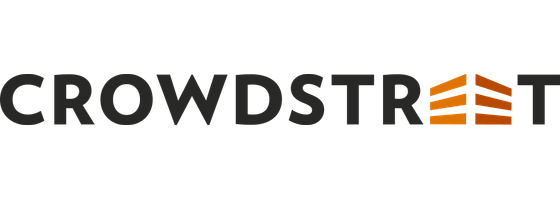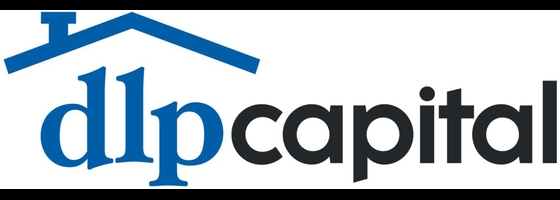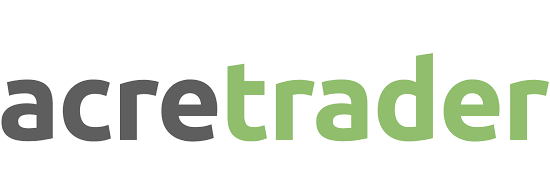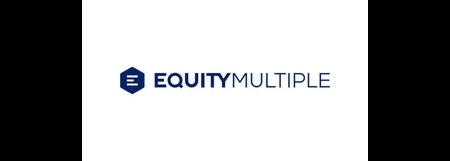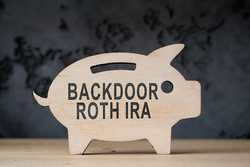- Low $10 minimum investment
- Ability to make quarterly redemptions
- Significant diversification through its four plans
8 Real Estate Crowdfunding Platforms To Know of

Our evaluations and opinions are not influenced by our advertising relationships, but we may earn a commission from our partners’ links. This content is created by TIME Stamped, under TIME’s direction and produced in accordance with TIME’s editorial guidelines and overseen by TIME’s editorial staff. Learn more about it.
Real estate can be a great way to diversify your investment portfolio. However, most people assume it requires thousands of dollars upfront to get started. Luckily, that’s not the case. Real estate crowdfunding platforms allow investors the chance to invest in real estate without a lot of cash.
But while real estate crowdfunding can be a great way to diversify your portfolio, finding a platform that fits your goals is critical. To help, we’ve reviewed dozens of platforms and picked the best for you to consider.
Fundrise is an excellent choice for new investors because of its low $10 minimum investment for brokerage accounts. The minimum for individual retirement accounts (IRAs) is $1,000. Through its different investment options, you can choose an investment that best fits your goals.
Available plans include supplemental income, balanced investing, long-term growth, and venture capital. If you are unsure which plan is most suitable, you can take a quiz to find out. If you want to take things further, you can sign up for Fundrise Pro for $10 per month. Fundrise Pro lets you customize your investment plan and access additional data to help support your investment decisions.
CrowdStreet mainly focuses on offering accredited investors high-risk, high-reward opportunities. Because of this, it's better suited for more experienced investors looking for undervalued commercial real estate where they have direct access to the sponsors. Most deals require a minimum investment of $25,000; however, some require up to $100,000.
CrowdStreet has a strict vetting process for choosing investments. Only a small portion of potential investments make the cut. Many investors appreciate this because it reduces some of the due diligence they need to do themselves. Unfortunately, this highly selective process also limits the investment options available.
For access to long-term or vacation rentals without buying an entire property, look no further than Arrived. Its platform allows you to invest in fractional shares of these properties with as little as $100. You can invest in individual homes or a fund, which includes many different properties.
Investors benefit from rental payments (minus fees) and the appreciation of the property once it’s sold. Arrived has a manager for each investment property, making it a solid passive investment option.
Instead of owning individual real estate properties, Groundfloor allows you to own a property's debt. The platform connects investors with borrowers who require short-term real estate loans, lasting anywhere from a few months to a couple of years.
You loan the money, then later get it back with interest. This model is similar to other peer-to-peer loan platforms. However, the debt on Groundfloor investments is secured by the property, reducing the overall risk.
Dozens of investments are usually available, and each is assigned a grade from A to G, representing its risk and potential return. Groundfloor claims its average return has been 10% since it was founded in 2013.
Founded in 2012, RealtyMogul is one of the older and more established real estate crowdfunding platforms available. Investors can access individual commercial real estate projects and multiple real estate investment trust (REIT) funds. Individual projects are only available to accredited investors, whereas the REITs are accessible to everyone.
One of the most significant drawbacks for REIT investors is the lockup period. While you can redeem your shares after 12 months, you won’t be eligible for full redemption until you reach three years.
Yieldstreet is an excellent option for investing in debt and equity real estate and other income-generating alternative assets. These include private credit, short-term notes, art, legal cases, and more. The company has more than 450,000 investors and an average annualized return of 9.6% since 2015.
Yieldstreet is available to both accredited and non-accredited investors. Accredited investors have access to all the platform’s investment products. Non-accredited investors, on the other hand, can only invest in the Yieldstreet Alternative Income Fund.
DLP Capital isn't an option for everyone because of its $200,000 minimum investment and accredited investor status requirements. However, four different real estate debt and equity funds give investors access to a wide range of investments, targeting an annual return between 9% and 13%.
The DLP Housing Fund and the DLP Building Communities Fund invest in rental properties, including single and multi-family houses, mobile homes and camps, and self-storage facilities. The two debt funds, meanwhile, focus on different types of real estate loans.
While many real estate crowdfunding platforms focus on residential and commercial real estate, AcreTrader is different. It gives accredited investors access to farmland. Investors earn a return from annual cash rent payments from farmers and the appreciation of land values over time. The initial investment will fluctuate based on the deal, with minimum investments typically ranging between $15,000 and $40,000. However, some deals can have higher investment requirements.
Due to AcreTraders' strict selection process, the number of investment opportunities can fluctuate. Less than 5% of the offers it considers make it through its vetting process.
One of the more significant downsides to AcreTrader is that investments are very illiquid. The company has discussed creating a secondary market for investors to sell their shares. However, until that happens, you must wait until the farm is sold, which can range from a few years to a decade.
EquityMultiple allows accredited investors to invest in direct real estate transactions and real estate funds. While the company promotes a minimum investment of $5,000, most deals listed on its website show a minimum investment of $10,000 to $20,000.
Many people like EquityMultiple because of the quality of its investments. Each investment goes through a rigorous vetting process, and only 5% of potential deals actually make the cut. Plus, EquityMultiple structures its deals to help give investors the highest possible return.
EquityMultiple is also known for its transparency. Each investment has a one-pager that explains everything an investor needs to know before investing. This includes a detailed summary of the property, why the company thinks that now is the best time to make the investment, and an in-depth view of the deal's financials.
| Crowdfunding platform | Minimum investment | Fees |
|---|---|---|
Fundrise | $10 | 1.00% per year (0.15% advisory fee, plus 0.85% asset management fee) |
CrowdStreet | $25,000 | Varies based on the deal |
Arrived | $100 | Long-term rentals: 3.5% sourcing fee, plus 0.15% quarterly AUM fee; Vacation rentals: 5% sourcing fee, plus 5% gross rent fee and variable property management fees |
Groundfloor | $10 | No fees to invest |
RealtyMogul | $5,000 | 1% to 1.25% management fees (additional fees may apply); Income REIT has a 4.5% maximum fee, and Apartment Growth REIT has a 4.75% maximum fee |
YieldStreet | $10,000 | 0% - 2% (varies by investment type) |
DLP Capital | $200,000 | 2% annual management fee, plus 20% of future profits if targets are reached |
AcreTrader | $10,000 | 0.75% annual management fee, plus closing costs and a commission when entire properties are sold |
EquityMultiple | $5,000 | Notes are fee-free. Direct Investments have a 1% asset management fee. |
To select the best possible real estate crowdfunding platforms, we looked at dozens of options and considered several different factors. This included the selection of investments, liquidity, fees, transparency, and educational resources. We also dug into the fine print of each platform to make sure all the information was available to anyone thinking about investing.
When choosing the right real estate crowdfunding platform, there are many things to consider. Our team has spent countless hours researching different platforms to find the best options. Here are some of the most important things you should pay attention to.
Fees are the most crucial factor when choosing a crowdfunding platform. High fees can significantly impact your overall return. When comparing different crowdfunding platforms, ensure you’re comfortable with their fees.
Real estate is a long-term investment, meaning your money is usually illiquid once invested. Some real estate crowdfunding platforms allow you to liquidate your investments quarterly or yearly. However, others have a multi-year holding period.
It’s essential to consider your investment choices with each platform. Some platforms only allow accredited investors to invest in individual deals, with everyone else just having access to the platform's real estate investment fund. Also, because most crowdfunding platforms have an in-depth vetting process for deals, there may be times when no investments are available.
The minimum investment amount will fluctuate significantly from one platform to another. Before signing up, understand the amount of cash you’ll need to commit to each deal.
Once you’ve found the right real estate crowdfunding platform for your needs, the next step is to open and fund your account. This process can vary by platform but typically entails the following steps.
If you decide that real estate crowdfunding isn't for you, here are some alternatives, including other real-estate investment opportunities.
Real estate crowdfunding helps both investors and real estate sponsors. Investors can gain access to the real estate asset class without large amounts of capital upfront. Its also a more passive investment than say, house-flipping or owning a rental property. Sponsors can use crowdfunding to raise money for individual projects. Instead of looking for cash from one investor, they can raise smaller amounts of money from many different investors.
Real estate sponsors turn to crowdfunding platforms to raise money for projects. Through online financial technology, investors can pool their money together to purchase an investment. This spreads the risk between all investors and reduces the cash each person needs to commit.
The money is typically paid into a REIT that owns the properties being invested in. The REIT then makes dividend payments to the investors through the crowdfunding platform. If the property is sold, the group of investors will typically be paid any gains minus fees.
Real estate crowdfunding provides investors with several benefits. Notable advantages include:
Even though real estate crowdfunding platforms offer many benefits, ensure you’re aware of the following risks:
The requirements to open a real estate crowdfunding account will vary from one platform to the next. You will typically need to provide your legal name, physical address, email address, a copy of your government-issued ID card, and your social security number.
If you open an account as an accredited investor, you must provide the necessary documents to prove your eligibility. Once your account has been approved, you’ll need to fund it with at least the minimum investment set by the crowdfunding platform.
Real estate crowdfunding has opened doors for people looking to diversify their investments in real estate without being required to purchase physical properties. However, with the increased popularity comes an overwhelming number of crowdfunding platforms to consider. Our guide can help you pick the best real estate crowdfunding platform for your needs.
The average return for crowdfunding real estate can fluctuate from one platform to the next and significantly between quarters. Annual returns have typically been between 2% and 20%. How much you earn depends on various factors, including the risk profile of the investment and fees and the economic environment and demand for the type of real estate being invested in.
The amount needed to invest in real estate crowdfunding varies from one platform to the next. Some require as little as $10, while others require $200,000 or more.
The best way to manage your risk is through diversification. Instead of investing in a single real estate deal, invest in several. That way, if one defaults or takes a loss during the year, the others can help protect your overall return.
There are many benefits to investing in real estate crowdfunding. However, like any other investment, it doesn’t come without risk. Do your due diligence on any platform before you invest.
The information presented here is created by TIME Stamped and overseen by TIME editorial staff. To learn more, see our About Us page.

